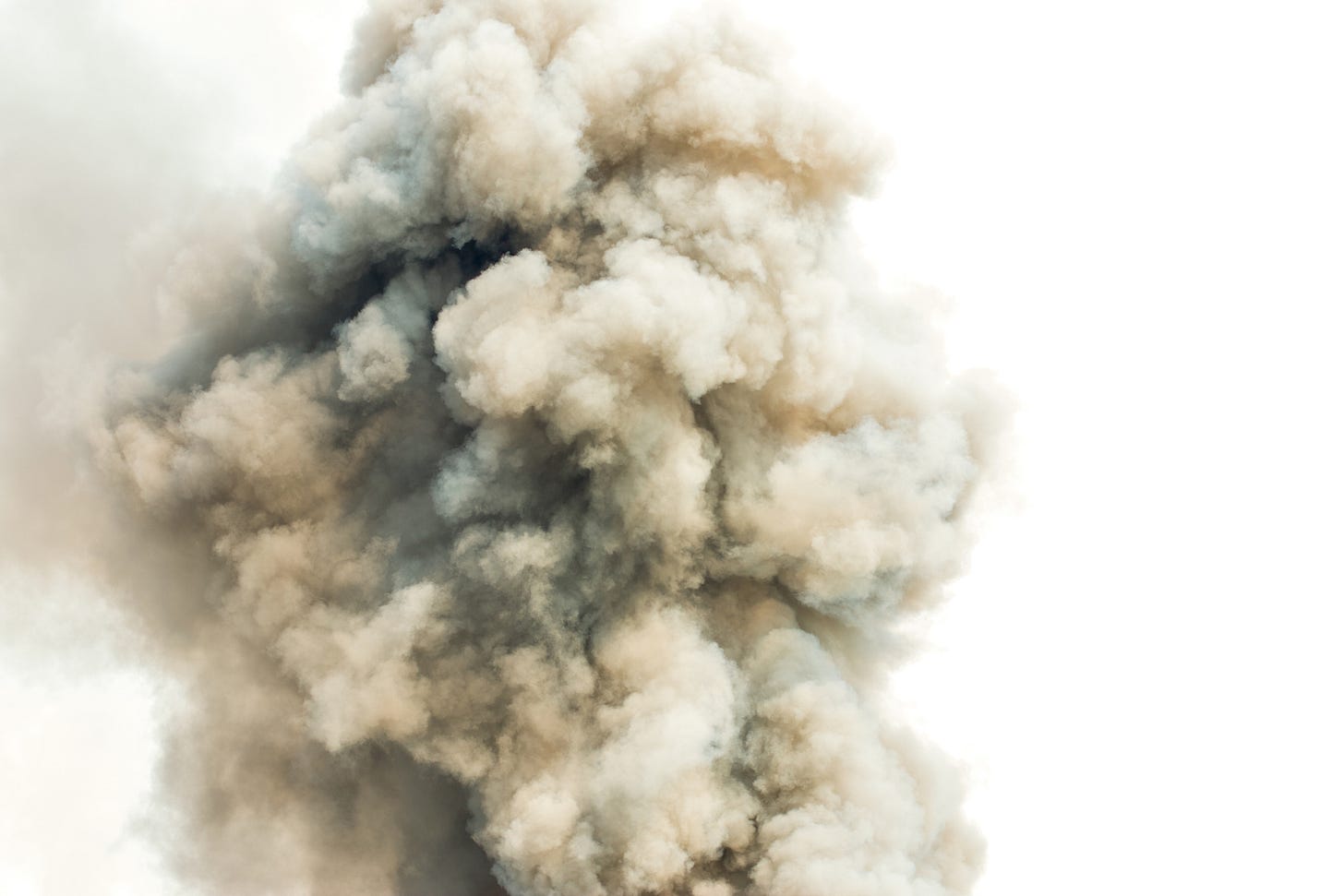In the words of John F. Kennedy, “Mankind must put an end to war, or war will put an end to mankind.”
Just as the United Nations IPCC Climate Report says humanity is on Code Red regarding climate, we’re on Code Red regarding perpetual war as well. Pulling our troops out of Afghanistan spells the end of one war, but it does not spell the end all wars. And unless we learn its deepest lessons it will simply be a pause before the next one.
We are living in an Age of Catastrophe. The catastrophe in focus two weeks ago was climate change, and last week it was Afghanistan. As long as there’s a new hurricane or wildfire to consider – and there will be – then the world’s attention will remain on climate change no matter what. But on the topic of Afghanistan, there’s a very real risk that as soon as the current drama over airport evacuations has faded from the nightly news, we’ll fall back into the somnambulism by which the average citizen ignored the war for the better part of twenty years. It’s important that we not jump off the topic too soon, or like Vietnam it will simply set the stage for the next iteration of itself after enough time has gone by.
After having routed the Taliban out of Afghanistan post 9/11, the ostensible reason we were staying in the country was to keep the Taliban at bay. But fewer and fewer people are buying that illusion now, of course. Our strategy for keeping terrorists out of the country could not have been more wrong-minded, or fraudulent, depending on how charitable you wish to be in your description of our war planning. Not only did we ultimately do little more than put a twenty-year pause in Taliban rule; we also did a lot of terrorizing of our own.
We countenanced extraordinary corruption in what was essentially an American puppet government, apparently not even trying to exhibit the democratic ideals we love to tout as our exceptionalism while giving little thought to whether or not we’re living them; waged mindless military madness killing thousands of Americans and tens of thousands of Afghans; and in a supposed effort to “prepare them to fight for themselves” sought to impose on a people who have proven over the centuries to be among the best guerilla fighters in the world, a way of fighting that is totally dependent on our systems, our continued presence, and our military equipment and support.
While it’s tempting to put blame on the military for “lying to us,” a lot more is going on here than that. In the words of French Prime Minster Georges Clemenceau over a hundred years ago, “War is too important to be left to the generals.” Our Founders understood this, encoding in our Constitution civilian control over the military. This came to be a complicated directive in the case of Afghanistan, however, as Congress abdicated its power to declare war by passing and then continuing to re-up the Authorization of the Use of Military Force after 9/11. The Authorization of the Use of Military Force, or AUMF as it is called, was passed in 2001 granting President Bush the authority to use all “necessary and appropriate force” against those whom he determined “planned, authorized, committed or aided” the September 11 attacks, or who harbored such persons or groups. All presidents since then have interpreted their authority under the AUMF to extend beyond al Qaeda and the Taliban in Afghanistan to apply to numerous other groups as well, in many places around the world. In fact, we don’t actually know all the place where the US military is “fighting terrorists” because the AUMF gives the government the right to classify that information and keep it secret. All this is the reason for our now roughly $780 Billion annual defense budget. Plus an additional $85B is classified! Today of all days we should be asking ourselves: now that we know what kind of job they did in Afghanistan, why should we assume they’re doing better anywhere else?

But let’s not just pin this on our military planners; our civilian leadership was at least, if not even more to blame for the debacle in Afghanistan. In general, military leaders are actually more sensitive to the true costs of war than are their civilian bosses. They’re closer to the human reality: the painful screams, the gushing blood, the broken lives, the tragic deaths. But they do what they are told to do. We cannot blame them if their directions were insane.
A story that famously made the rounds before the invasion of Iraq was of a US general telling another general, “We’re going into Iraq.” His colleague responded in a slow and surprised way, “Why?” To which his friend said sadly, “Hell if I know.”
The military knows how to wage war, and in fact that is their job. They’re like a team of surgeons we need to keep on hand, and if we need surgery then of course we must have the best. But a sane person tries to avoid surgery if at all possible, and a sane country tries to avoid war.
While our military leaders know how to wage war, we need a whole new breed of civilian leaders who know how to wage peace. Or even want to.

You can’t just keep fighting war and hope maybe you’ll back up into peace. Just as health is not the absence of sickness but rather sickness is the absence of health, peace is not the absence of war but rather war is the absence of peace. The healthiest person proactively cultivates health, and the healthiest society proactively cultivates peace. Our war planners, both military and civilian, presumably know a lot about war but they know nothing about peace. They clearly have not an ounce of sophistication regarding the purpose, the need, or even the way, to consciously wage it.
And why is that? Is it that we don’t have world class diplomats and peace builders among us? We certainly do, but they’re consistently sidelined. We don’t wage peace because there’s a strong institutional resistance to doing so, war being the biggest cash cow for a defense industry that fuels not only our economy but also the donor base of both political parties. War profiteering is no longer a crime, it’s an industry. While it’s proven that a peace economy – investments in education, health, economic opportunities, etc. – actually brings more of a return than does defense spending, it’s a return that accrues to the actual citizens of our country more than to corrupt politicians who get their jobs, and keep their jobs, by doing what their donors demand. I would try to find a kinder, more respectful, more elegant term than outright corruption, but there isn’t one that actually describes the situation and is deeply true.
As it is, we really should stop saying we have the most powerful military in the world. In fact we do not. Perhaps we have the most forceful military in the world, but a military that has now lost three wars in a row can hardly be called “the most powerful in the world.” I assure you they’re not calling it that in some major capitals around the world right now. Force, we certainly had – over $2T worth of force. But still, in the end, the power of brute force alone was not enough to achieve any permanent result that America can be proud of.
Our declared reason for being so long in Afghanistan was to rid that country of the specter of the Taliban, a goal at which we failed spectacularly. But that is not just because we failed at war; it is because we failed at peace.
So here we are. Young men and women fight our wars, middle aged men and women bloviate about our wars, and elderly men and women go, “Oh my God, what have we done?”
Secretary of Defense under both Presidents Kennedy and Johnson, Robert McNamara, was the main architect of the Vietnam war. Years after the debacle, McNamara admitted to the war having been “wrong, terribly wrong.” But one of the reasons he cited for having gotten things so wrong was this: “We didn’t know anything about the Vietnamese people. We didn’t know about about Vietnamese history, or culture, or religion. And we didn’t have anyone to teach us.”
On one hand, I’m sure they could have found someone to teach them all of those things, had they wished to ask. But the paradigm they were operating within left no room for what they would have seen at the time as such “soft” issues. Like their counterparts today, they were blind to what McNamara would only come to see later in life: that “we do not have the God-given right to shape every nation in our image or as we choose.” Duh…?
The peace building powers they were missing then, and that too many of our establishment leaders lack today, are psychological understanding, emotional intelligence, knowledge of history, humility, cultural respect, compassion, humanitarian values, integrity, wisdom, and moral sobriety. Today’s war planners didn’t exhibit any of those traits, and not because they didn’t have anyone to teach them. It’s because they were operating within a set of stunningly corrupt and obsolete ideas about what it will take to fix the world. They were still under the false perception that waging war was more powerful than waging peace.
But just as the military does what civilian leadership directs them to do, our civilian leadership does what we the people direct them to do. As long as we either vote for the war mongers, or don’t show up to vote for those who are willing to stand up to the military industrial complex, then we ourselves are complicit in America’s military madness. In this, as in so many areas, each of us must ask ourselves now: how can we as citizens help to turn all this around?
America is addicted to war, and we the people must stage an intervention. From meanness on the internet; to too many guns on our streets in the hands of both civilians and law enforcement; to our perpetration of military misadventures abroad, America is drunk on war. We war against each other, we war against the earth, we war against the truth, we war against other countries, and we cannot seem to stop.
Transformers are not just activists; we’re nonviolent revolutionaries. In the words of Mahatma Gandhi, “Self-purification precedes direct political action.” If we choose to be the interventionists, we must route out the warlike nature within ourselves. We can’t transmit to the world what we ourselves aren’t at least trying to achieve.
The shame and horror we feel this week; the sea of desperation at the Kabul airport that we can’t ignore; the realizations of waste and corruption that produced a defeat we can no longer deny – this is America’s collective hangover. We’re like many an alcoholic who awakens the next morning with an appalling headache and a raging case of self-loathing.
May this be our bottoming out. May our knees finally hit the floor. May we be finally willing to admit our addiction. May we finally be willing to change.
Today’s reflection: View this portion of President Eisenhower’s Farewell Address given on January 17, 1961, in which he coined the phrase and warned the nation about the military-industrial complex.